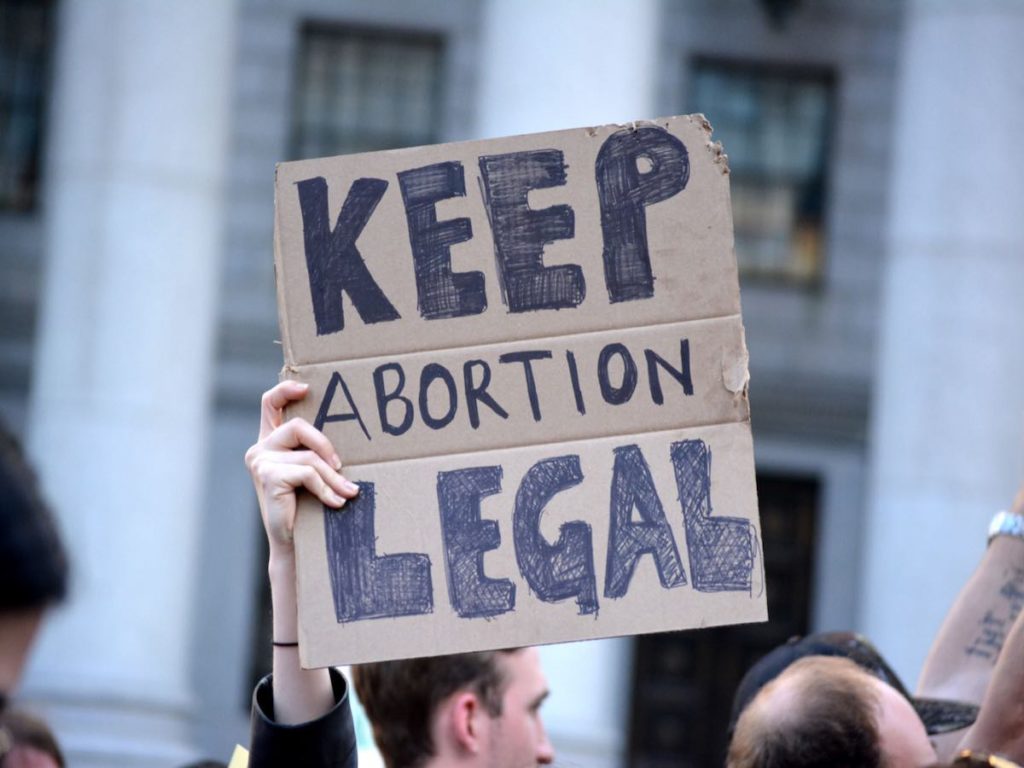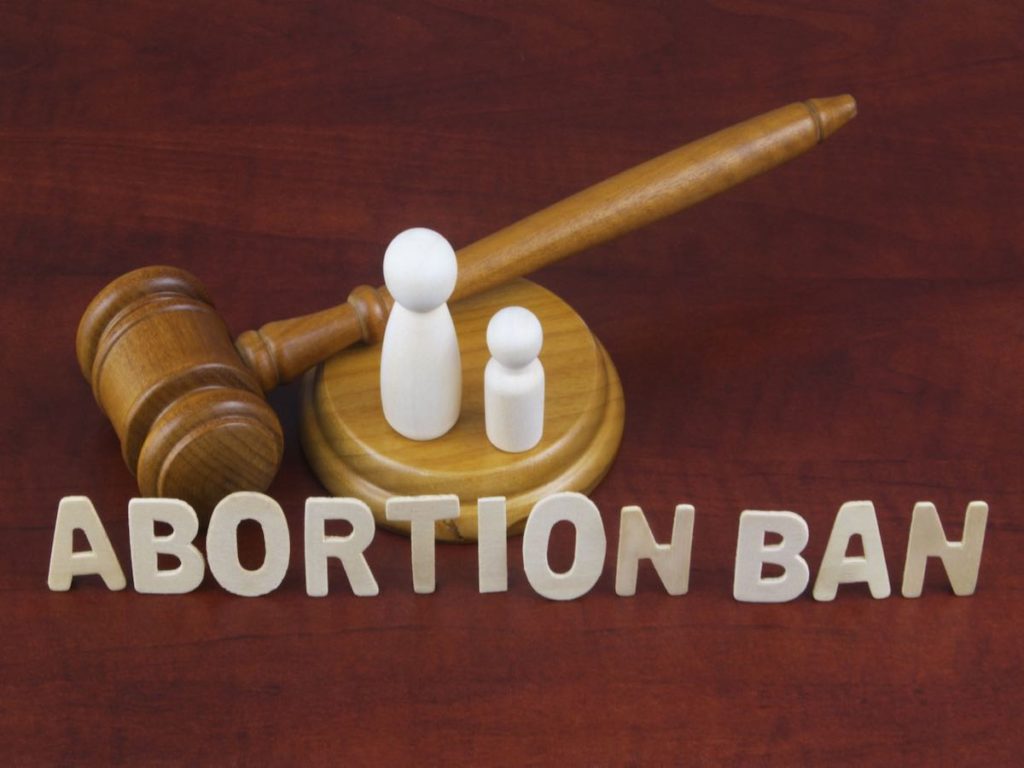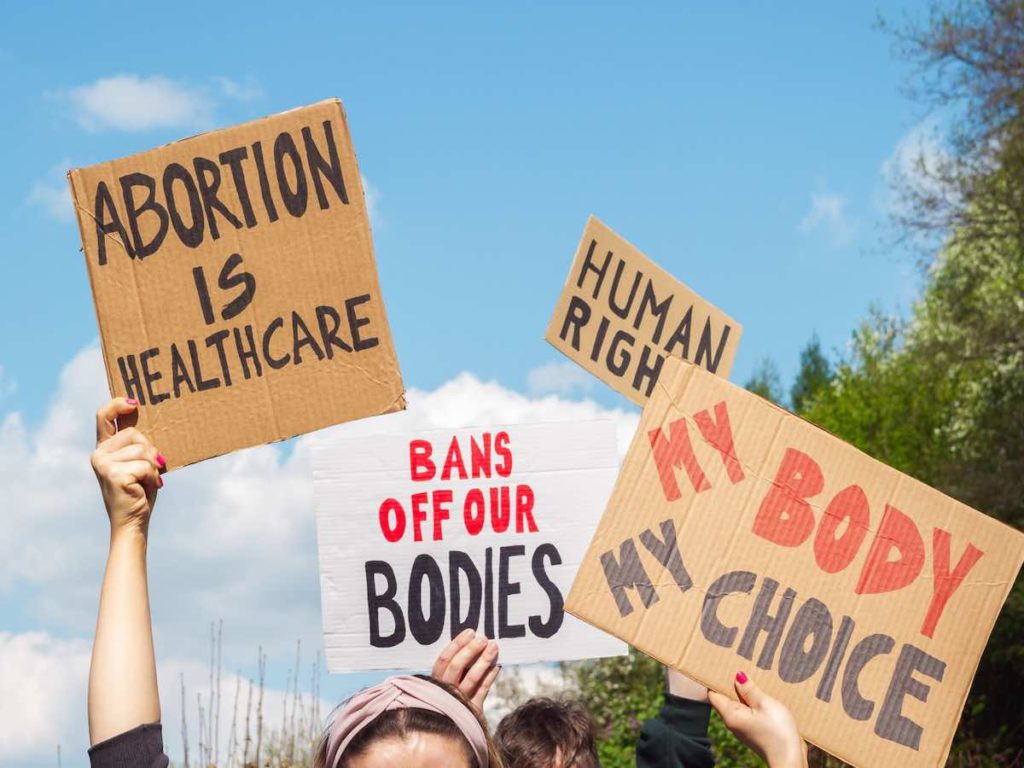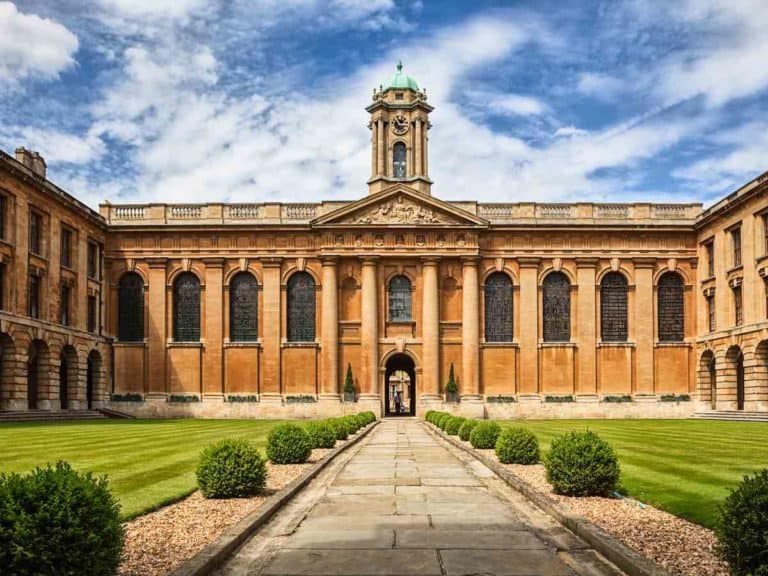Colleges With Abortion Bans: Read Before Apply
Now more than ever, it’s important to consider a college or university’s location before deciding whether or not you should apply to it. This is especially true after the US Supreme Court rescinded abortion rights by overturning the Roe v. Wade case, thereby allowing states to make abortion illegal.
If you are a college-bound teen who is deeply concerned with your reproductive freedom and rights, read on.
This post will answer some of the most sensitive yet ought to be asked questions by everybody, especially now that one’s dream of earning a college degree can be potentially put to a halt by unplanned pregnancies.

Is Abortion Ban an Important Matter to College Students?
Unwanted pregnancy is one of the most common problems college students face. Based on a study conducted on female students at certain colleges, over 43% of those who got pregnant had an induced abortion. It also learned that abortion was more common in female on-campus residents.
There is no denying that abortion rights is an issue that concerns college students with great significance. After all, the majority of those who undergo abortion are college-age females.
Long before the Roe v. Wade overturning, they already have a moderate degree of commitment to the matter.
According to data provided by the Guttmacher Institute, which is a research organization committed to advancing sexual and reproductive health and rights in the US, over 50% of abortion patients in the country are in their 20s — of those, 34% are aged 20 to 24, while 27% are aged 25 to 29.
Based on an investigation by the National Study of Youth and Religion (NSYR), which involved repeatedly interviewing over 200 American teenagers from 2003 to 2013, here are some of the reasons why students dropped out of college:
- Financial difficulties
- Academic challenges
- Health issues
- Need to enter the workforce
But the common reason provided by the participants was unplanned pregnancy.
According to the same NSYR study, dropping out of college as a result of being in the family way unintentionally was more common at community colleges, where almost 50% of students, females and males alike, have experienced unnecessary pregnancy — most have to quit studying in order to get minimum-wage jobs and provide for their kids.
While it’s true that most of those community college students who had to abandon their studies wanted to graduate, up to 61% who had children after enrolling failed to earn a degree.
In terms of the impact of the abortion ban on medical students who are said to undergo abortion training through a hidden curriculum, the absence of online data makes it apparent that, as of the time being, it’s unclear. A Planned Parenthood physician, however, agrees that all soon-to-be physicians should obtain basic education about the procedure.
Can Abortion Ban Impact Which College You Go To?
Individuals who are of reproductive age may reconsider attending colleges in states where abortion is banned or restricted. This is especially true for low-income students who are less likely to be able to afford to travel in order to obtain the procedure where it can still be performed legally.
Since the US Supreme Court overturned the Roe v. Wade case, which has legalized abortion all over the US since 1973, a lot of college-bound teens have rethought their higher education plans.
Many fear that going to schools where there are restrictions won’t let them get an abortion should they need one.
Based on a Rape, Abuse and Incest National Network (RAINN) report, 26.4% of undergraduate female students experience rape or sexual assault by means of physical force, violence, or incapacitation. Due to the fact that rape leads to at least a 5% chance of getting pregnant, an abortion ban can make many students think twice before applying to a college.
If you value your reproductive freedom, chances are that you may cross institutions in states where abortion is now or expected to be illegal out of your college list.
However, it can be easier said than done, especially since there are also other things to consider such as college costs, a degree program’s quality and your career goals. With such being the case, weighing the pros and cons of choosing a school to attend after the Roe v. Wade reversal should be considered with a lot of thought and care.
Which States Now Ban or Restrict Abortion?

As of this writing, abortion is completely banned in at least nine states. This is especially true after laws keeping a tight rein on the procedure came into effect following the overturning of Roe v. Wade by the US Supreme Court. Soon, more abortion bans are expected to be enacted in about 50% of all states.
Location is one of the most important considerations when building a college list.
Is it too far from family and friends at home? Does it provide the environment suited for you? And now, it’s also important to determine whether or not abortion procedures are legally accessible.
States where abortion is banned or likely to be restricted
In the following states, abortion is either already prohibited or is very much likely to be banned or restricted anytime soon, depending on the outcomes of the fight over abortion access still taking place in courtrooms:
Alabama
- Legal status of abortion: Prohibited
- Abortion ban in effect: Now
Immediately after the Supreme Court’s decision, Alabama immediately banned abortion and vowed to send anyone in the state who performs abortion to prison for up to 99 years. In the Yellowhammer State, abortion is prohibited with no exceptions for both rape and incest.
Arizona
- Legal status of abortion: Prohibited
- Abortion ban in effect: Blocked currently
Until 1973 when it was blocked by a court, there exists a law in Arizona that bans abortion with no exceptions for rape or incest. It also criminalizes providers. Mark Brnovich, the state’s attorney general, said that he will ask the court to resurrect the said law. In September 2022, an abortion ban at 15 weeks of pregnancy will come into force.
Arkansas
- Legal status of abortion: Prohibited
- Abortion ban in effect: Now
Even before the US Supreme Court overturned Roe v. Wade, Arkansas already has a trigger law banning abortion should states be given the power to restrict abortion. True enough, abortion was banned in Arkansas, without any exceptions whatsoever for rape and incest, after June 24, 2022.
Florida
- Legal status of abortion: Restricted
- Abortion ban in effect: Now
A Florida law, which was blocked but then quickly reinstated, prohibits abortion after 15 weeks of pregnancy, albeit with exceptions if it’s necessary to save the life of the pregnant woman or prevent injuries or if the fetus has fatal abnormalities. The law has no exceptions for pregnancies due to rape, incest or human trafficking.
Georgia
- Legal status of abortion: Restricted
- Abortion ban in effect: Soon
While it may not be the strictest abortion law in the US, Georgia’s 2019 law called the Living Infants Fairness and Equality (LIFE) Act, which is expected to take effect soon, would severely limit access to the procedure. It does, however, would have a few exceptions, such as in case of rape or incest or when the pregnant woman’s life is endangered.
Idaho
- Legal status of abortion: Prohibited
- Abortion ban in effect: Soon
Prior to getting Roe v. Wade abolished by the US Supreme Court, the state of Idaho allowed most abortions up to fetal viability, which is at around 24 weeks of pregnancy. It also triggers the state’s 2020 law that bans all abortions, except in cases of reported rape or incest or in order to protect the life of the pregnant woman.
Kentucky
- Legal status of abortion: Prohibited
- Abortion ban in effect: Blocked currently
As of now, two laws in Kentucky, the trigger law and the heartbeat law (restricting abortions at around six weeks of pregnancy), both of which were passed back in 2019 and designed to take effect the moment the Supreme Court decides to allow states to ban abortions, are blocked from being enforced.
Louisiana
- Legal status of abortion: Prohibited
- Abortion ban in effect: Blocked
A judge in Baton Rouge, Louisiana has temporarily blocked the state’s trigger law that makes abortion illegal, although providing an exception for medically futile pregnancies where fetuses have fatal abnormalities. As of this writing, however, it’s unclear whether or not the three abortion clinics in the Pelican State will open.
Mississippi
- Legal status of abortion: Prohibited
- Abortion ban in effect: Now
In Mississippi, only one abortion clinic exists, and its request for the state to temporarily block a prohibition on almost all abortions was dismissed by a state judge. Although it’s true that abortion is banned in the Magnolia State with no exceptions for incest, there are, however, exceptions for rape.
Missouri
- Legal status of abortion: Prohibited
- Abortion ban in effect: Now
Currently, the state bans abortion with zero exceptions for rape or incest. However, Missouri law allows it during medical emergencies and whenever necessary in order to save the life of the mother. But it’s indistinct as to which particular medical issues qualify for the abortion exemption.
North Dakota
- Legal status of abortion: Prohibited
- Abortion ban in effect: Soon
In the US, a total of 13 states have trigger laws designed to take effect should Roe v. Wade get reversed, and North Dakota is one of them. While the said law makes all abortions illegal in the state, it does make exemptions, such as in rape or incest cases or to save a pregnant woman’s life. It also makes it a felony for doctors to perform it.
Ohio
- Legal status of abortion: Restricted
- Abortion ban in effect: Now
After six weeks of pregnancy, particularly if fetal heart activity is detected, abortion is banned in Ohio. Despite having this law, in July 2022, the state’s lawmakers introduced a bill that would ban all abortions, except to save the life of the pregnant mother — an exception for rape or incest victims is not likely.
Oklahoma
- Legal status of abortion: Prohibited
- Abortion ban in effect: Now
A month before the US Supreme Court invalidated Roe v. Wade, Oklahoma governor Kevin Stitt already signed into law what’s considered the country’s strictest abortion ban, which also made the state the very first one in the US to end abortion’s availability. The governor, by the way, once promised to sign all pro-life legislations.
South Carolina
- Legal status of abortion: Restricted
- Abortion ban in effect: Now
In South Carolina, the abortion law took effect as soon as the US Supreme Court overturned Roe v. Wade. The said law restricts abortion procedures starting around six weeks of pregnancy. The state’s lawmakers are planning to completely ban abortion without exceptions for victims of rape and incest.
South Dakota
- Legal status of abortion: Prohibited
- Abortion ban in effect: Now
In South Dakota, all abortions are considered illegal. There are also no exceptions for rape and incest. However, the procedure may be performed if there is an appropriate and reasonable medical judgment necessary to preserve the life of a pregnant female. Governor Kristi Noem says the state will look for ways to help mothers in need.
Tennessee
- Legal status of abortion: Prohibited
- Abortion ban in effect: Soon
For as long as an unborn child already has a heartbeat, aborting it is illegal — such is Tennessee’s heartbeat law, which bans abortion as early as six weeks into pregnancy. It is expected soon, however, that all abortion forms will also be banned in the state, with zero exceptions for rape or incest.
Texas
- Legal status of abortion: Prohibited
- Abortion ban in effect: Now
There is an abortion ban law in Texas called Senate Bill 8 or SB 8, which took effect in the fall of 2021. The law provides cash incentives to private citizens who succeed in suing anybody who has helped an individual get an illegal abortion. SB 8 offers no exception for rape, incest or severe fetal abnormality.
Utah
- Legal status of abortion: Prohibited
- Abortion ban in effect: Blocked
The abortion trigger law of Utah is on hold as of the time being as a result of a ruling by a state court judge. In case the said law gets enacted, abortion will be banned, although with a few exceptions such as if the fetus has severe abnormalities and the mother is at risk of death. Rape or incest is an exception, too, but only if reported to the authorities.
West Virginia
- Legal status of abortion: Prohibited
- Abortion ban in effect: Now
In the state of West Virginia, a law banning abortion with no exceptions for rape or incest and criminalizes providers of the procedure has been around prior to the Roe v. Wade decision. The state’s attorney general, Patrick Morrisey, vows to provide guidance on how the legislature should go to save as many babies’ lives as possible.
Wisconsin
- Legal status of abortion: Prohibited
- Abortion ban in effect: Now
Even before the overturning of Roe v. Wade by the Supreme Court, Wisconsin already has a law that bans almost all abortions and makes performing it chargeable with felony offenses.
Wisconsin’s governor, Tony Evers, however, promised to grant clemency to any doctor charged under the said state law.
Wyoming
- Legal status of abortion: Prohibited
- Abortion ban in effect: Soon
Because there is only one abortion clinic in Wyoming and abortion cases are few and far between, it’s also known as an abortion desert. Despite this, the overruling of the Roe v. Wade decision by the Supreme Court means an automatic ban on all abortions in the state, which is set to take effect anytime soon.
States where abortion is legal for the time being
There are states where the governors or lawmakers exhibit an interest in abortion. In some, abortion rights may be upheld for a while. In others, however, laws that banned abortion prior to the 1973 Roe v. Wade decision could be once again enforced. In any case, they are the following states:
- Indiana
- Iowa
- Kansas
- Michigan
- Montana
- Nebraska
- North Carolina
- Pennsylvania
- Virginia
States where abortion is likely to remain legal
And then there are also states where the right to an abortion is expected to remain intact. In some of them, as a matter of fact, access to abortion is planned on being extended by requiring insurance providers to pay for the procedure as well as increasing the number of in-state abortion providers. These states are:
- Alaska
- Illinois
- New Hampshire
- California
- Colorado
- Connecticut
- Delaware
- Hawaii
- Maine
- Maryland
- Massachusetts
- Minnesota
- Nevada
- New Jersey
- New Mexico
- New York
- Oregon
- Rhode Island
- Vermont
- Washington
- Washington, DC.
What are Colleges Doing About the Abortion Ban

The reactions of institutions of higher education to Roe v. Wade’s invalidation by the US Supreme Court are divided. Some college presidents vow to keep on upholding high-quality reproductive health care for their students, while others, particularly those from religiously affiliated schools, are happy with the ruling.
After the Roe v. Wade case was overturned, it didn’t take long before the administration of colleges and universities in various states made their opinions known.
Their statements, as expected, exhibit contrast just like those of American society.
No matter if you are in the process of making a college list or about to make one anytime soon and the recent abortion regulation in the land is something that you have strong feelings, fears and concerns about, it’s understandable why you would want to hear the stance of the schools you are about to shortlist on the reproductive rights matter.
Let’s take a quick look at some of the pronouncements of some of the most well-known colleges and universities in the land, which could easily be some of the choices of degree-seeking students:
- Duquesne University. The president of Duquesne University, which is a Catholic school, says that the needs of the students will be addressed with action rooted in the commitment to service and care.
- Liberty University. Since Liberty University has been praying, volunteering and advocating for almost 50 years for the life of mothers and their unborn babies, it is happy with the Supreme Court’s decision.
- Notre Dame University. As a Catholic school, Notre Dame University has long been an advocate for the unborn life’s protection, although it vows to work with those who share its views as well as those who don’t.
- Princeton University. Since abortion remains legal in New Jersey, the president of Princeton University says that the healthcare and benefits for its employees and students are unaffected.
- University of California. The president of the University of California strongly supports allowing the students access to evidence-based healthcare services, especially in consultation with their medical team.
- University of Iowa. In order to maintain an open and respectful discussion of differences on campus, the president of the University of Iowa has chosen to keep her opinions on abortion private.
- University of Michigan. Because the University of Michigan’s campus consists of more than 50% women, it isn’t surprising why its president strongly supports access to abortion services.
- University of Oregon. The school’s president says that the University of Oregon will continue to act within the law to offer reproductive health support and resources in its student health and counseling programs.
- University of Wisconsin. The University of Wisconsin System confirms continued monitoring of the legal process surrounding this matter and will completely adhere to the law as it continues to evolve.
- Yale University. The Ivy League school’s president confirms that the institution will continue to follow Connecticut law on reproductive rights, which preserves the legal right to abortion.
Just Before You Apply to a College
College students, females and males alike, are some of those that can be impacted the most by the overturning of the 1973 landmark decision Roe v. Wade by the US Supreme Court. This is most especially true since, as mentioned above, the majority of abortion patients in the US are college-age females.
And this is why there is one more very important reason for the location to have equal weight to (or even more than) other factors to consider before an institution is shortlisted by a teen like you who is gearing up for college.
Disclaimer: The views and opinions expressed in this article are those of the authors and do not necessarily represent those of the College Reality Check.





